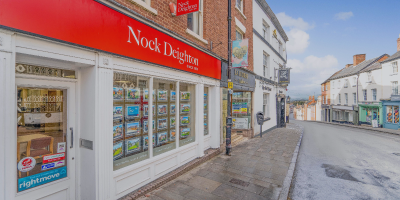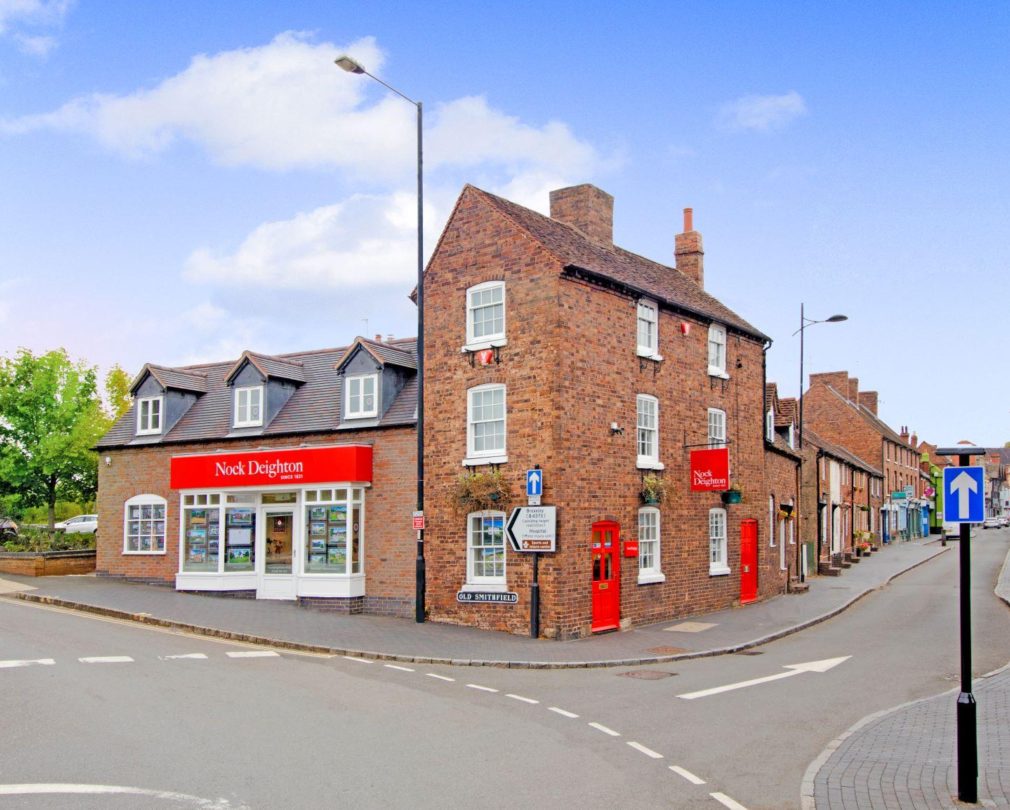
Jargon Buster
Administration/Application Fee.
Is the fee you pay at the time you submit your application to secure a mortgage. This fee covers the cost of processing the application and performing a credit check; it can include an upfront appraisal, as well.
Annual Percentage Rate (APR)
APR measures how much a loan or other line of credit costs you in interest over one year, and it is expressed as a percentage of the total amount of money that you borrow.
Applicant
The person(s) applying for a property to potentially buy.
Appreciation
The increase in value of an asset over time.
Arrangement Fees
According to the Financial Services Authority (FSA), an arrangement fee is a commitment or administration fee usually payable to the lender to reserve the mortgage funds.
Asset
Any item of economic value owned by an individual or corporation, especially that which could be converted to cash.
Auction
The process of buying and selling goods or services by offering them up for bid, taking bids, and then selling the item to the highest bidder.
Bridging Loan
A short-term loan that is used until a person or company secures permanent financing or removes an existing obligation. This type of financing allows the user to meet current obligations by providing immediate cash flow.
Building Survey (formerly full structural survey)
A Building Survey is a comprehensive inspection of a property. Its suitable for all properties, especially; Listed buildings, Older properties, Buildings constructed in an unusual way, Properties you plan to renovate or alter in any way, Properties that have had extensive alterations. It examines all accessible parts of the property - and you can ask to have specific areas included, so it covers any particular concerns you have about the building.
Buildings Insurance
Covers the fabric of the actual building and if you own property that you rent out you must insure the building. Any mortgaged property will require a buildings insurance policy to protect the building.
Buy-To-Let Mortgage
A mortgage used to buy property that you intend to rent. It differs from a mortgage on property that you intend to live in, in that the mortgagee takes into consideration the income the property will produce in deciding how much to lend.
Capital
The amount of money either put into buying a property or the deposit placed on a property. (Also known as equity.)
Capped-Rate Mortgage
A capped rate mortgage is very similar to a fixed rate mortgage except that if the variable rate drops below the capped rate, the borrower will make payments based on the lower variable rate. However, should rates increase the payments will be capped and will not rise over the capped rate.
Chain
Occurring when a buyer is reliant upon completion of the sale of their existing property in order to complete on the purchase of the new property.
Commission
The fee payable to the estate agent for selling the property.
Common Areas
Amenities such as corridors, hallways, lobby, pool, toilets provided for the comfort and use of all occupants, owners, tenants, or users of a building or building complex.
Completion Date
The date that the monies are transferred and the buyer becomes the legal owner of the new property.
Conditions Of Sale
The details that determine the rights and duties of the seller and buyer. These may be national, statutory or the Law Societys conditions.
Contents Insurance
Insurance that pays for damage to, or loss of, an individuals personal possessions whilst they are located within that individuals home.
Contract
A legal agreement between the seller and buyer of a property, which once exchanged, binds both parties to complete the transaction.
Contract Race
When more than one party has made the same offer on a property, it will be sold to the first person to successfully exchange contracts.
Conveyancer
A qualified person who deals with all the legal aspects of buying and selling a property. Typically a solicitor or licensed conveyancer.
Conveyancing
The legal process enabling the transfer of the property from the vendor to the purchaser.
Council of Mortgage Lenders (CML)
The CML is the trade association for the residential mortgage lending industry.
Covenants
Rules and regulations governing the property constituting a pledge to do or refrain from doing something, contained in its Title Deeds or Lease.
Credit Check
The process of evaluating an applicants loan request in order to determine the likelihood that the borrower will live up to his/her obligations.
Credit History
A record of a consumers ability to repay debts and demonstrated responsibility in repaying debts.
Deeds
A document evidencing a persons legal right or title to the property.
Deflation
A situation where prices are falling. (The opposite of Inflation)
Deposit
A sum of money (typically 10% of the purchase price) paid by the buyer, upon exchange of contracts.
Depreciation
The decline or reduction in the value of a property.
Detached
Term used to describe a property that stands alone from all others.
Disbursements
Fees paid by the buyers solicitor on the buyers behalf such as stamp duty, land registry and search fees.
Down Valuation
In the event of a surveyor advising that the property is not worth the sum sought, the amount available for borrowing will be restricted by the lender.
Draft Contract
Preliminary version of the sale contract sent out to the purchasers solicitor.
Endowment Mortgage
Interest-only repayments combined with monthly premiums into an endowment policy designed to pay off the loan at the end of the term.
Energy Performance Certificate (EPC)
An EPC (Energy Performance Certificate) provides an overview specifics of the prospective energy overall performance of your property, its material and facilities.
Equity
The amount of money saved in the property that exceeds the amount of monies borrowed against the property.
Excess
The initial sum of money paid on an insurance claim.
Exchange of Contracts
When your conveyancer has your signed contract and the sellers conveyancer has the sellers signed contract, the two will swap or exchange contracts. Your conveyancer will also transfer your deposit (the money that you pay at exchange) to the sellers conveyancer from your own funds and arrange a date for completion. If you pull out after this point, you could lose your deposit.
Financial Services Authority (FSA)
An independent body that regulates the financial services industry in the UK.
Fixed Rate Mortgage
A mortgage in which the interest rate does not change during the entire term of the loan.
Fixtures and Fittings
There is no legal definition of what constitutes fixtures and what constitutes fittings, however, it is generally considered that fixtures are items that are secured or bolted to the walls or floor and fittings are free standing items.
Flexible Mortgage
With a Flexible Mortgage you are allowed to make extra payments when you have extra money available. Extra payments can be lump sum or extra amounts per month. Some flexible mortgages also offer the option of taking a payment holiday by building up a reserve of excess payments.
Flying Freehold
This can occur when first floor accommodation forming part of one freehold is located over ground floor accommodation forming part of another freehold. The first floor freeholder does not own the land beneath the property, and is then said to own a flying freehold.
Freehold
Where the owner of the property also owns the land on which it is built.
Gazumping
When a vendor accepts an offer for the property from a third party for a higher price despite already having agreed a sale to the original buyer.
Gazundering
When a buyer makes a reduced offer on the property prior to exchange of contracts.
Ground Rent
A fixed annual charge levied by the freeholder to the leaseholder.
Guarantor
This is someone who is prepared to promise to pay the borrowers debt if the borrower defaults.
IFA
Independent Financial Advisor.
Inflation
Defined as a sustained increase in the general level of prices for goods and services.
Interest Charges
A charge for a loan, usually a percentage of the amount loaned.
Interest-Only Mortgage
A type of mortgage in which the mortgagor is only required to pay off the interest that arises from the principal that is borrowed and repays the full loan amount at the end of the mortgage period.
Joint Income
The total gross income of two people sharing the repayment of a mortgage.
Joint Tenants
A type of property right where two or more people own or rent a property together, each with equal rights and obligations.
Land Registration
The process of registering the legal title of an area of land with the Land Registry, typically handled by a solicitor.
Land Registry Fee
The fee payable for the above.
Lease
A legal document by which the Freehold (or Leasehold) owner of a property lets the premises or a part of it to another party for a specified length of time, after the expiry of which, ownership may revert to the Freeholder or superior Leaseholder.
Leasehold
A type of ownership in which a person owns a property, but not the land upon which it is built. The owner of the Freehold will grant a lease on the property for a specified length of time.
Legal Charge
A mortgage on the property.
Lender
The party, typically a bank, building society or mortgage company, offering the loan.
Lenders Arrangement Fees
A charge made by the lender for arranging a loan.
Listed Building
A listed building is a building or structure which is considered to be of special architectural or historic interest., which cannot be demolished or altered without prior local government approval.
Loan To Value (LTV)
A financial term used by commercial lenders to express the ratio of a loan underwritten to a value of an asset purchased.
Local Authority Search
A search carried out by the solicitor to find out if there are any Local Authority Notices, with respect to the building itself (e.g. has it been condemned?), and the surrounding area (e.g. have plans gone through to build a motorway next to the house?).
Maintenance charge (or service charge)
Mortgage
An amount of money advanced by a lender on the security of a property and repayable over a long period of time.
Mortgage Broker
A person who advises on the types of loans available and assists any subsequent application.
Mortgage Deed
The legal document that confers ownership or title to a property.
Mortgage Payment Protection (MPP)
Insurance designed to pay your monthly mortgage for a period, if you are unable to work for reasons beyond your control.
Mortgage Rate
The interest rate quoted by mortgage lenders.
Mortgage Term
The time over which a mortgage loan must be repaid.
Mortgagee
The lender of a mortgage (i.e. bank or building society).
Negative Equity
Occurs when the value of a property has fallen to below the level of the loan secured on it.
Offer
A sum of money a potential buyer offers to pay for a property.
Office Copy Entry
A Land Registry document confirming ownership of and borrowings against a property.
Open Market Value
The price a property should achieve where there is a willing buyer and willing seller.
Peppercorn Ground Rent
A nominal periodic ground rent (usually paid annually).
Preliminary Enquiries
The initial enquiries about a property put forward to a seller, which the seller must answer before the exchange of contracts.
Purchaser
The person who is buying a property.
Re-Mortgage
Refinancing of a property.
Redemption
When a mortgage is fully repaid.
Repayment Mortgage
A mortgage in which monthly charges are used to repay the interest and reduce the outstanding capital.
Repossession
When the mortgage lender takes possession of a property due to non-payment of the mortgage.
Retention
The ability of a lender to hold back (retain) part of a mortgage until certain conditions are met.
Search
A request for information held by a local authority or by the Land Registry in regard to the chosen property.
Semi-Detached
Two houses attached together.
Service Charge
Service charges are paid by the owner and cover the cost of providing various services (i.e. maintenance and repair of the building and common parts, provision of heating, lighting and security).
Solicitor
A legal expert handling the sale or purchase of a property.
Stamp Duty
A tax paid by the buyer of a property.
Standard Variable Rate
Mortgage lenders standard rate of interest which can vary over time.
Structural Survey
A thorough inspection of the property and a report that covers the issues in a more detailed fashion.
Subject To Contract
An agreement that is not yet legally binding and depends upon the terms yet to be agreed within the contract.
Surveyor
A professional person qualified to estimate the value and condition of land and property.
Tenure
Conditions on which a property is held (i.e. length of lease).
Terraced House
A property that is part of a row of houses.
Title Deeds
Legal documents showing the ownership of a property.
Title Insurance
An insurance policy which a buyer can take where there is a potential problem with the documentation in proving legal ownership of some part of the land they are buying.
Title Search
An investigation carried out by a conveyancer into the history of ownership of a property.
Tracker Mortgage
A type of mortgage whereby any changes in the rate of interest charged follow exactly (track) another, specified, interest rate or index.
Transfer Deeds
The Land Registry document that transfers legal ownership from seller to buyer.
Under Offer
The status of a property for sale when a seller has accepted an offer from a buyer, prior to exchange of contracts.
Valuation
A basic survey of a property to estimate its value for mortgage purposes. Mortgage lenders will insist on this before lending.
Vendor
The person selling a property.
Void
An empty space or area.
Yield
The income return on an investment.










 Payment
Payment






